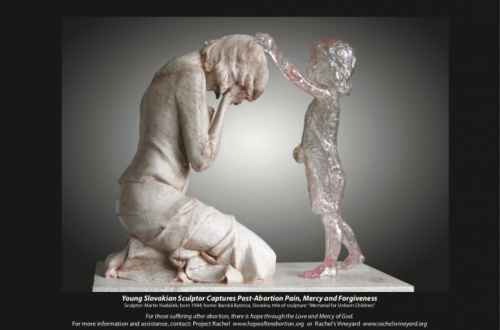Free to Forgive
Every Sunday millions of Christians pray, “Forgive us our sins, for we also forgive everyone who sins against us” (Luke 11:4). It’s easy to say that without thinking about whether we have really forgiven all those who have offended or wronged us.
Forgiveness is extremely difficult to grant others because it costs us so much. When we forgive someone, we accept the loss or the hurt without demanding any reimbursement, revenge, or satisfaction of any kind. Forgiveness means we suffer so that the offending party can be restored to fellowship with us.
To forgive means we hold no grudges and nurse no resentments. To forgive means to yield a claim that might rightfully be ours. It means to excuse a penalty that might be justified. This is why forgiveness, if genuine, goes far beyond saying a rote prayer.
Matthew 18:21–35 records an exchange between Jesus and Peter (along with the rest of the disciples) about the issue of forgiveness. The consensus view among their Jewish peers was that a person could be forgiven up to 3 times, but there was no forgiveness for the fourth offense.
Evidently, Peter felt quite magnanimous when he doubled the number and then added one more for good measure, bringing the limit to 7. It’s best not to be overly critical of Peter. After all, his question indicated his understanding that forgiveness was far better than revenge.
Peter’s approach represents how many people feel their religious duties should be fulfilled. Everything can be reduced to numbers, not just the number of times a person attends corporate worship or how much money a person gives to the poor, but also how many times a person should forgive someone before exacting retribution.
Generally speaking, this is a religion defined by externals, in which our displays of piety are evaluated by legalistic standards we fabricate. We convince ourselves that our “best” efforts at being devout meet with God’s approval.
Yet, such thinking is delusional, especially since it contradicts Isaiah 64:6, in which the prophet declared that “all our righteous acts are like a polluted garment.” Similarly, Paul stated in Philippians 3:8 that every self-generated attempt we make at being godly is comparable to “garbage” or “dung.”
The above is also a transactional form of religion. The unstated expectation is that if we live up to our end of the bargain (in whatever way we define it), the Creator will reciprocate in kind.
Such self-centered thinking is far removed from the spirit of what Jesus sought to teach. Here, a stingy soul keeps track of the number of times it forgave, while a loving soul forgives time and time again.
If Peter, and the rest of the disciples, wanted to put a limit on forgiveness, Jesus gave them one. His answer must have stunned them. Forgiving someone 7 times would not be enough, even though that number surpassed the tradition of the day. No, it would have to be 77 times.
During the first century A.D., 7 was considered to be the number of perfection. So, Jesus took a concept to show that forgiveness was endless, ever-renewed, and continued forever; in other words, a limit could not be placed forgiveness.
Jesus illustrated His statement about unlimited forgiveness with a parable about a king who attempted to settle his accounts with his servants. The first servant brought to him owed the king 10,000 talents (or bags of gold).
A talent was not a coin, but a measurement of weight. It was the largest unit of weight in the New Testament era and was used for measuring out gold and silver.
In Roman times, a talent was valued at approximately 6,000 denarii. In Jesus’ day, a single denarius was the equivalent of the average laborer’s daily wage. So, the amount owed by this servant was equal to 60 million denarii.
Clearly, the servant’s debt was so large that it would have been humanly impossible for him to repay it, taking well over 164 thousand years to satisfy. The king was going to sell the servant and his entire household into slavery, as well as liquidate the estate. Yet, slaves generally sold for a talent or less apiece, so the sales would not wipe out the debt.
The servant, recognizing his desperate plight, bowed down before the king, pleaded with him for patience, and promised to make good on the debt. Instead of granting further time for repayment, the king canceled the debt altogether and allowed the servant to go free.
The king’s response was prompted by the deep compassion he felt for the helplessness of his servant. The monarch’s actions symbolized God’s forgiveness of believers’ sins.
The king’s compassion had a strange effect on the servant. Rather than being grateful for the mercy he had received, the servant became arrogant, greedy, and spiteful.
Accordingly, after leaving the king’s presence, the ingrate went searching for a fellow servant who owed him 100 denarii (or silver coins). This was a tiny fraction of the amount the king had forgiven.
Moreover, the poor soul who owed the ingrate money was a fellow servant. Instead of showing the same compassion that the king had extended to him, the servant began to choke his peer and demand immediate payment.
The fellow servant in Jesus’ parable pleaded for mercy using words similar to those the forgiven servant had spoken to the king. Like the servant who had already been forgiven, the debtor begged for patience and promised to repay the debt. Given sufficient time, he probably could have done so.
However, instead of treating the other servant as mercifully he had been treated by the king, the wicked servant had his colleague thrown into debtors’ prison. There he would be repeatedly tortured and compelled to do forced labor.
Other servants who saw this travesty of justice were so horrified that they reported it to the king. In response, he had the ingrate thrown into prison and tortured until he repaid his entire debt. Given the size of what he owed the king, this really amounted to a life sentence, if not the death penalty.
The moral of Jesus’ parable is that the ungrateful servant should have treated others as he had been treated. In Jesus’ application, He pointed out that this is also what God expects of those who have experienced His forgiveness (see Matt 6:14–15; Eph 4:32; Col 3:13).
Even more disturbing, Jesus’ words imply that God would treat similarly those who refused to forgive others. They would be shown the same measure of mercy that they extended to others.
Against the backdrop of inexpressible pain caused by others, it is understandable for us to recoil at what Jesus’ said. But then, regardless of how exaggerated the parable appears, it causes us to recognize that the enormous debt owed by the wicked servant represents our own debt of sin before our Creator.
Furthermore, as stated earlier, all our best efforts to be pious fall short of the infinite perfection our Creator requires of us. Indeed, Romans 6:23 reveals that death (eternal separation from God) is the penalty for our iniquities.
That is why the Father, despite His offended holiness, sent His beloved Son to die on the cross as an atoning sacrifice for our trespasses. Also, since the Father offers His pardon freely to us through faith in His Son, our one and only response is to forgive others unconditionally, including those who have devastated our hopes and shattered our expectations.
Admittedly, the above is impossible for us to do in our own strength. It takes divine empowerment for us to truly forgive people for some of the worst transgressions done to us. Therefore, we always need to seek the Spirit’s help in rising above our weakness of character, our anger and self-pity, and our desire to hate and find some way to pay back evil for evil.
We also need the Spirit’s help in order to let go of any feelings of rage and resentment we might be tempted to coddle. God alone can enable us to pay back evil with good, while trusting in His ability to carry out justice. When we forgive as Jesus has taught us, we become a special people—a blessing to God and others, as well as to ourselves.




